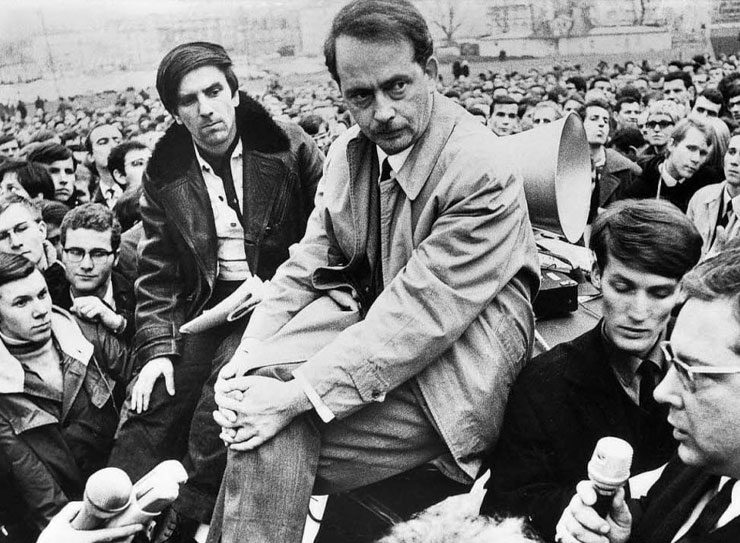17 June 2019
How ELF introduced me to Ralf Dahrendorf
By Håvard Sandvik, Former ELF program officer, currently senior policy advisor for the Norwegian Liberal Party My first full-time job […]

By Håvard Sandvik, Former ELF program officer, currently senior policy advisor for the Norwegian Liberal Party My first full-time job […]

By Håvard Sandvik,
Former ELF program officer, currently senior policy advisor for the Norwegian Liberal Party
My first full-time job out of university was for the European Liberal Forum. It was there where I first became acquainted with him: Ralf Dahrendorf. This venerable life peer, former European commissioner and acknowledged academic was the namesake of the European Liberal Forum’s Ralf Dahrendorf Roundtable Series. What impressed me with Dahrendorf was not his resume, his titles or other accolades. It was his honesty, integrity and love of freedom. Today only one portrait hangs in my office: Ralf Dahrendorf in intense discussion with Rudi Dutschke, atop a car amid a sea of angry student protesters. This is the Dahrendorf I admire.
In 1968 students had taken to the streets everywhere in Europe to protest. In Germany student protesters faced off against a deeply conservative state which had not yet fully come to terms with its national socialist past. The leader of this revolt was Rudi Dutschke, the man who would later be shot by a right-wing activist. In these tumultuous times Ralf Dahrendorf was the one who went out to debate Dutschke when the students showed up at the 1968 F.D.P. party congress in Freiburg. If you listen to the clips of this debate you will hear that Dahrendorf stood firm, but that he addressed the students’ concerns with respect. He did not patronise their views, yet he stood firmly on his own values.
Later in life he traversed two countries, Britain and Germany. He became a European commissioner, yet fell out with his bureaucracy only to return to academia. He was involved with two Liberal parties, the F.D.P. in Germany and the Liberal Democrats in the United Kingdom. It did not matter what role he served in, he would fearlessly criticise his compatriots when he thought it necessary. That made him unpopular in many camps, but his independence also earned him the respect of many others.
In his lifetime he wore many labels, but he was not concerned with any single one of them. The only label he stood in unwavering defense of was freedom. As an intellectual he helped define the meaning of freedom for European Liberalism, as a politician he worked to further its cause wherever he went. As an academic he was a champion of intellectual freedom. He was a lord and a professor, but more importantly he was a freedom fighter.
I always appreciated that it was the roundtable series which bore Dahrendorf’s name. The format gave participants and speakers an opportunity to sit together around one table, to discuss without concern for rank or background. There could be tough and uncompromising discussion, but in the end all participants were joined around one table. I hope the name will continue to inspire other young Liberals to hang his portrait on their office walls.
Picture: J. H. Darchinger.
Usage rights: Friedrich-Naumann-Foundation